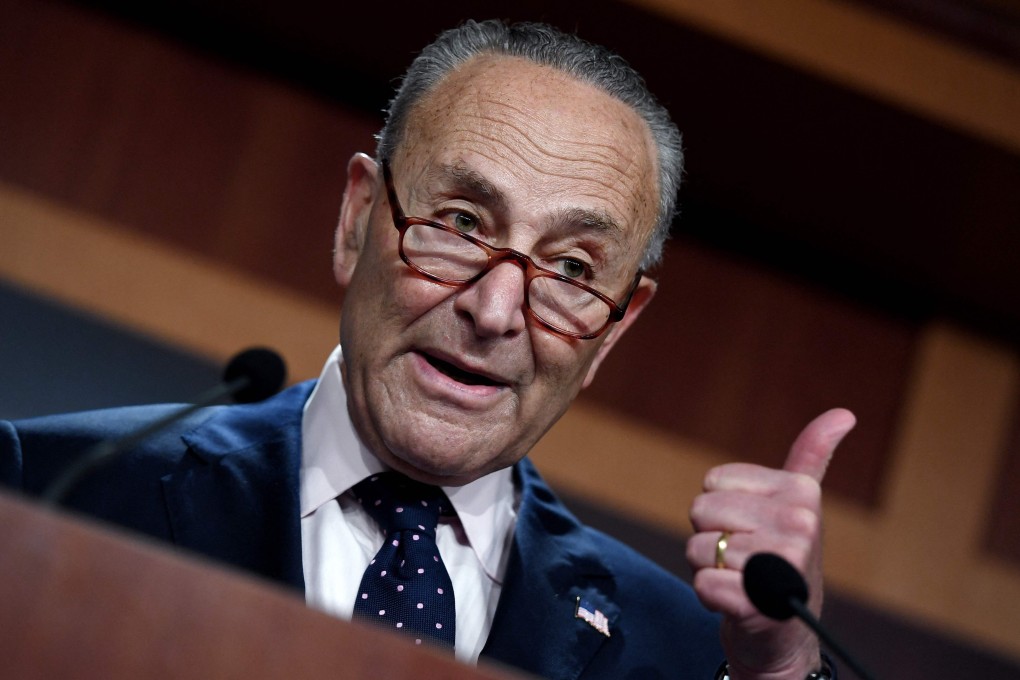US Senate leader will add stalled China tech legislation to defence policy bill
- ‘Our supply chain crisis needs attending to and we cannot wait,’ Schumer said when announcing that the defence measure would be amended to include the tech bill
- The strategy does not guarantee that USICA will become law, but it increases the chances for some of its most important provisions

US Senate Democratic Majority Leader Chuck Schumer said on Monday he will add legislation to boost US competitiveness with China to a massive defence policy bill the Senate is due to begin considering this week, a boost for a measure that has been stalled for months in the House of Representatives.
“Our supply chain crisis needs attending to and we cannot wait,” Schumer said in a Senate speech announcing that the annual National Defence Authorisation Act, or NDAA, would be amended to include the US Innovation and Competition Act, or USICA.
On Monday, Biden held a virtual summit with Chinese President Xi Jinping.
Reuters reported on Sunday that supporters of USICA were considering adding its provisions to the NDAA. As one of the few major pieces of legislation passed every year, the NDAA often acts as a vehicle for a range of policy issues.
That strategy does not guarantee that USICA will become law, but it increases the chances for some of its most important provisions.